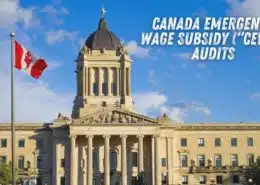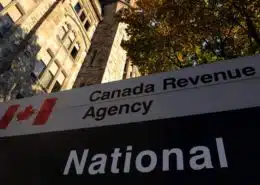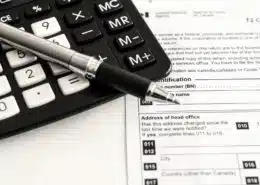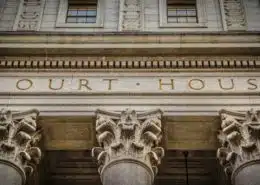What Happens If You Owe the CRA Money and Cannot Pay?
Owing taxes to the Canada Revenue Agency (CRA) can be stressful, but understanding your options can help you manage tax debt effectively. Whether you’re facing financial hardship or looking for tax relief solutions, this guide explores what happens when you owe money to the CRA and how to deal with tax debt.
What Happens If You Owe Taxes to the CRA?
If you owe money to the Canada Revenue Agency (CRA) and cannot pay immediately, the CRA will attempt to collect the outstanding amount. Unlike other creditors, the CRA has powerful collection tools and can take legal action without a court order.
The CRA’s collection actions may include:
- Applying penalties & interest – Daily compounded interest starts accumulating the day after the tax payment deadline. (CRA Interest Rates)
- Seizing bank accounts – The CRA can freeze your accounts and withdraw funds.
- Wage garnishment – The CRA can contact your employer and deduct tax debt from your paycheque.
- Liens on property – The CRA can register a lien against your home or other assets.
- Seizing assets – In extreme cases, the CRA may seize and sell assets to recover unpaid taxes.
– Related Resource: What to Expect from CRA Collections
What Are Your Options If You Can’t Pay Your CRA Debt?
If you cannot pay your tax debt in full, you have several options:
1. Payment Arrangement (Tax Repayment Plan)
You can negotiate a repayment plan with the CRA based on your financial situation. The CRA allows taxpayers to pay in installments instead of a lump sum.
To qualify, you must:
- Provide financial disclosure showing your income and expenses.
- Demonstrate that full payment is not possible immediately.
- Stick to an agreed-upon schedule.
– Related Resource: CRA Payment Arrangements
2. Taxpayer Relief Program (Penalty & Interest Relief)
If your tax debt resulted from extraordinary circumstances (e.g., illness, job loss, natural disasters), you can apply for penalty and interest relief under the Taxpayer Relief Program.
- What Can Be Reduced? Late payment penalties & accrued interest.
- What Cannot Be Reduced? The principal tax amount.
– Related Resource: CRA Taxpayer Relief Program
3. Consumer Proposal (Debt Settlement Program)
A consumer proposal is a legal debt settlement program administered by a Licensed Insolvency Trustee. It allows you to:
- Reduce your overall tax debt.
- Avoid bankruptcy.
- Stop CRA collections and wage garnishments.
However, this option has a long-term impact on your credit score.
4. Bankruptcy as a Last Resort
Declaring bankruptcy is a last resort option if you have overwhelming tax debt. Filing for bankruptcy eliminates most CRA debts, including unpaid income taxes, GST/HST, and payroll deductions.
However, some tax debts may not be discharged, such as those related to fraud or penalties imposed by court order.
– Related Resource: How Bankruptcy Affects CRA Debt
Does the CRA Offer Tax Debt Forgiveness?
The CRA does not fully forgive tax debt, but you may qualify for:
- Partial relief on penalties and interest through the Taxpayer Relief Program.
- Debt reduction through a consumer proposal.
- Legal tax settlements in rare cases.
If you are experiencing severe financial hardship, consulting a tax lawyer can help explore legal tax relief options.
How Can a Tax Lawyer Help with CRA Debt?
A tax lawyer provides legal protection and negotiation leverage when dealing with the CRA. At KR Law Firm, we help clients by:
- Challenging tax reassessments to reduce outstanding balances.
- Negotiating repayment plans that work for your budget.
- Defending against CRA collection actions like bank seizures or wage garnishments.
- Applying for tax relief programs and settlements.
If you’re struggling with CRA debt, contact us today for a free consultation.




